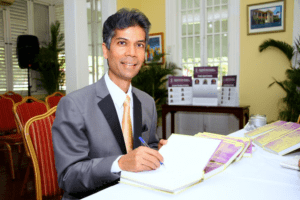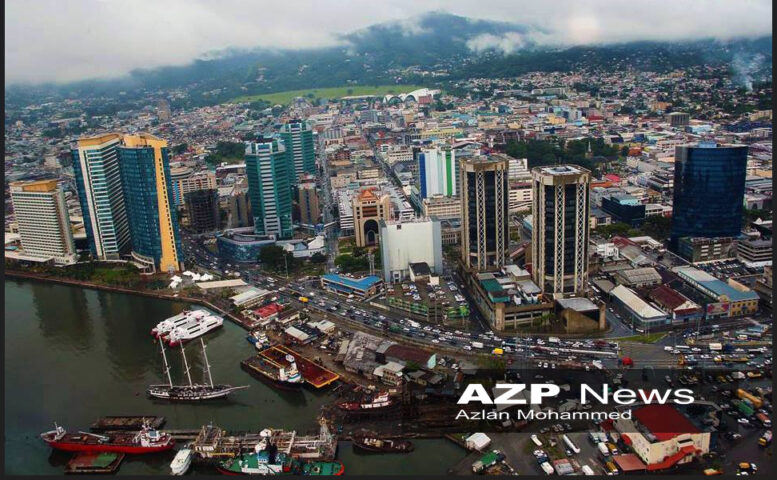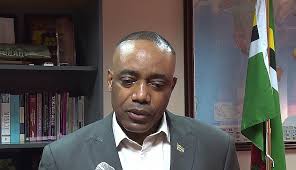
FOR some persons it seems that developing countries have become a financial black hole which continuously needs and owes money.
These countries cannot continue being debtors, dependent and viewed in derogatory terms as monetary parasites. There must be a decision to escape from the financial abyss and stop accepting ‘charity’ and handouts from international organisations with their hidden agendas. Only then can developing nations, that attain political
independence, boast of being truly independent.
Their difficult fight for political independence and bloody severing of colonial umbilical cords must not be in vain. Thus their politically independent status must be carefully guarded, preserved and reflected in their society and economy.
There are countries that have achieved a certain level of growth, and are transitioning from developing to developed status. Indeed, they are classified in a higher economic bracket, but should not abandon the other developing countries.
These transitioning countries needs to share knowledge, ideas and technology to ensure more of the least developed countries can be promoted into the more economically refined and respectable status.

Likewise, in the basic and traditional class structure, the middle class, cannot forsake their former class status and aspire for the life of the upper class. Now, more than ever, there is need to assist the less fortunate, inspire the depressed and those plagued with misfortunes because it is those persons formerly in the oppressed lower class who would best understand the troubles being experienced.
The complexity of the global order is that the developing countries, if they are to improve, needs the assistance of the developed.
It is a dilemma because as much as the developed world blames the developing economies for some of the world’s ills– such as overpopulation and pollution, the developed nations cannot exist without the human and natural
resources of developing countries.
There is a symbiotic relationship between these two major economic spheres of the world.
Developing countries need to put aside their petty difference and unite. This seems as a feasible solution yet it is the most difficult step, especially when one considers the hurdles of trading treaties and agreements, bitter competition and rivalries.

In the Caribbean and Latin America, the United States has proven to be a bully with many disguises. In the nineteenth and twentieth centuries, the United States’ foreign policies such as Dollar Diplomacy, Monroe Doctrine, Good Neighbour and Big Stick, have been a curse to the region and were designed to closely monitor the economic and political developments of these neighbouring countries.
Sanctions against a country should be condemned. Why should the folly of one leader be responsible for the fate of millions of innocent persons ? Another effective and less debilitating, yet peaceful, strategy should be implemented.
For almost half a century, the United States spitefully enforced an embargo on Cuba. This should have been an opportunity for Third World countries to openly condemn this action and display solidarity for a fellow nation in crisis.
Instead the majority of developing countries were concerned with self-preservation and maintaining good relations with the United States and international organizations. Undoubtedly, the United States, with its naval base, is a squatter at Guantánamo Bay in Cuba. They have no right or justification to inhabit part of Cuba or any other country. The United States has used that base to air its dirty laundry from the prying eyes of the United States public and its most recent ‘guests’ being Iraqi prisoners of war.
Likewise, the involvement of the United States in the Middle East and the subsequent invasion of Iraq was an excuse to protect oil interests and ensure there was no disruption of the precious supply of oil to the United States. However, the United States conveniently used the leadership of Saddam Hussein as an excuse for intervention. The Third World must stop being cowards and hypocrites. They must play an active role in changing the course of international relations. They must reject the paternal autocracy which governs their relationship with developed countries.

The cowardly actions of Osama Bin Laden in destroying the World Trade Center in New York, in September 2001, resulted in Islam being stigmatised as a religion of terrorists. Also, the search by the United States for one spineless, cold-blooded individual meant the killing and suffering of hundreds of innocent women and children and destruction of cultural artefacts in Afghanistan.
The United States undertook the role of a vigilante and ignored the rational and logical advice of the United Nations and other countries.
Dr Jerome Teelucksingh is an activist. He initiated the inaugural observances of International Day for the Elimination of Violence Against Men and Boys (January 31) and World Day of the Boy Child (May 16). He has made academic presentations at tertiary institutions including Harvard University and Oxford University.
See other articles by Dr Jerome Teelucksingh on AZP News:
T&T Carnival and the Emperor’s New Clothes
The Influence of Labour on Caribbean Integration
The illusion of political Unity
Presbyterians in Trinidad: Humble Missionaries, Local Workers
Religious Plurality: Curse or Blessing
Caribbean Youth Need Optimism, Patriotism
Rethinking Identities in Caribbean, Latin America
November 19: All Inclusive International Men’s Day
Should International Agencies be Blamed for Unemployment
A Need to Observe Word Unemployment Day
An Ideology for the Trade Union Movement
The Man who Couldn’t be Prime Minister
Social Outburst vs Social Revolution
Challenges of the Men’s Movement
If George Floyd was Denied Parole
The Meaning of Indian Arrival Day in T&T
International Men’s Day – A Way of Life
Wounds that cause school violence
May Day: A Time for Solidarity, Strength
Who Coined the Term ‘Black Power’
The illusion of political Unity
Presbyterians in Trinidad: Humble Missionaries, Local Workers
Religious Plurality: Curse or Blessing
Caribbean Youth Need Optimism, Patriotism
Rethinking Identities in Caribbean, Latin America
November 19: All Inclusive International Men’s Day
Should International Agencies be Blamed for Unemployment
A Need to Observe Word Unemployment Day
An Ideology for the Trade Union Movement
The Man who Couldn’t be Prime Minister
Social Outburst vs Social Revolution
Challenges of the Men’s Movement
If George Floyd was Denied Parole
The Meaning of Indian Arrival Day in T&T
International Men’s Day – A Way of Life
Wounds that cause school violence
May Day: A Time for Solidarity, Strength
Who Coined the Term ‘Black Power’
![]()












